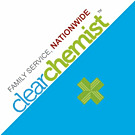Cetirizine: Beyond Hay Fever Relief
Cetirizine, widely recognised as an effective antihistamine for managing hay fever (allergic rhinitis), is also used for various other conditions due to its ability to block histamine, the chemical responsible for allergic symptoms. While many turn to this medication to alleviate the common symptoms of sneezing, runny nose, and itchy eyes caused by seasonal allergies, cetirizine has several additional applications. Let’s explore some of the lesser-known uses of cetirizine beyond hay fever relief.
- Chronic Urticaria (Hives)
One of the most common uses of cetirizine outside of hay fever is in the treatment of chronic urticaria, a condition that causes persistent hives or welts on the skin. These raised, itchy bumps can appear due to allergic reactions or unknown causes. Cetirizine helps to alleviate the itching, redness, and swelling associated with hives by blocking the histamines that trigger these symptoms. It’s often used as a first-line treatment for those suffering from ongoing skin allergies.
- Angioedema
Angioedema is another allergic reaction that can be treated with cetirizine. It causes deep swelling under the skin, often affecting the lips, eyes, throat, or even the hands and feet. The condition can be triggered by food allergies, insect stings, or medications. Cetirizine can help reduce swelling and associated discomfort by limiting histamine production, making it beneficial for managing mild to moderate cases of angioedema.
- Allergic Conjunctivitis
Cetirizine can also be effective in managing allergic conjunctivitis, an eye condition characterised by redness, itching, and watering due to allergens like pollen, pet dander, or dust mites. While it is more commonly taken orally, cetirizine's antihistamine properties help alleviate these allergic eye symptoms and provide relief from eye irritation.
- Eczema (Atopic Dermatitis)
Although not a primary treatment, cetirizine is sometimes used to reduce the itching associated with eczema, a chronic skin condition characterised by inflamed, itchy, and dry skin. While moisturisers and topical steroids are the first line of defence, cetirizine may be recommended to help prevent scratching and reduce flare-ups triggered by allergens or irritants.
- Allergic Asthma
Though cetirizine isn’t a replacement for asthma inhalers or specific asthma medications, it can play a role in managing allergic asthma. Allergens like pollen or dust can trigger asthma symptoms in some individuals. Cetirizine helps by reducing the body’s allergic response to these triggers, potentially lessening the frequency and severity of asthma attacks, particularly in patients with allergic components to their asthma.
- Insect Bite Allergies
For those who experience intense itching, swelling, or redness from insect bites or stings, cetirizine can offer relief. It’s particularly helpful for individuals who are prone to allergic reactions from bites by mosquitoes, bees, or other insects. Taking cetirizine can help reduce the body's histamine response to these bites, making symptoms more manageable and reducing inflammation.
- Food Allergies
While cetirizine is not a substitute for emergency treatments like adrenaline in severe food allergies, it may help alleviate mild to moderate allergic reactions to certain foods. These reactions can include hives, itching, or swelling after consuming a food allergen. As part of a broader treatment plan, cetirizine can help manage symptoms before they escalate.
- Non-Allergic Rhinitis
Non-allergic rhinitis, also known as vasomotor rhinitis, presents similar symptoms to hay fever (runny nose, nasal congestion, and postnasal drip) but isn’t triggered by allergens. Instead, it’s often due to changes in temperature, strong odours, or irritants. Cetirizine, though an antihistamine, may be beneficial in reducing the histamine-driven aspects of these symptoms, offering some relief to those with this condition.
- Post-Surgical Itching
Itching after surgery is a common side effect of anaesthesia or pain medications like opioids. Cetirizine is sometimes prescribed to help reduce post-surgical itching without causing drowsiness, especially in patients who cannot tolerate sedating antihistamines.
Unlocking Cetirizine’s Full Potential
While cetirizine is best known for treating hay fever, its antihistamine properties make it a versatile medication for various allergic and histamine-related conditions. From managing chronic hives to helping with allergic asthma and insect bites, cetirizine provides relief beyond seasonal allergies. However, as with any medication, it’s essential to use cetirizine under the guidance of a healthcare provider, particularly for conditions outside of hay fever, to ensure it’s the right choice for your symptoms.
By understanding the full range of cetirizine’s uses, patients can benefit from its broader application, potentially improving their quality of life for various allergic and histamine-related conditions.













